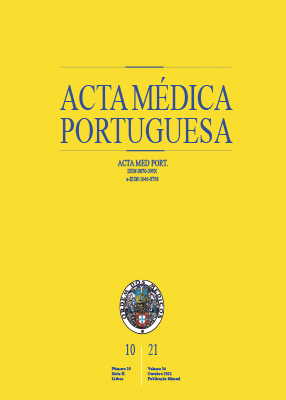Clinical Challenges in Pedophilia-Themed Obsessive-Compulsive Disorder
DOI:
https://doi.org/10.20344/amp.13296Keywords:
Obsessive-Compulsive Disorder/diagnosis, Obsessive-Compulsive Disorder/therapy, Pedophilia, Social StigmaAbstract
In obsessive-compulsive disorder, pedophilia-themed obsessions-distressing intrusive thoughts about being sexually attracted to, or sexually abusing, children-are the most distressing for patients and the most misdiagnosed among healthcare professionals. Our aim is to present a case report highlighting the role stigma plays in delaying treatment, the clinical challenges in the diagnosis, and in the treatment of pedophilia-themed obsessive-compulsive disorder, in order to address the lack of literature on the subject. The case concerns a 33-year-old man with suicidal thoughts associated with the unbearable suffering caused by pedophilia-themed obsessions he had been having over the previous decade, without ever asking for help. This situation was highly disabling, leaving him mostly isolated in his bedroom. After the differential diagnosis was made, a treatment plan combining pharmacological and cognitive-behavioural therapy was implemented. After 18 months he showed a degree of remission that made it possible for him to apply for a job.Downloads
Downloads
Published
How to Cite
Issue
Section
License
All the articles published in the AMP are open access and comply with the requirements of funding agencies or academic institutions. The AMP is governed by the terms of the Creative Commons ‘Attribution – Non-Commercial Use - (CC-BY-NC)’ license, regarding the use by third parties.
It is the author’s responsibility to obtain approval for the reproduction of figures, tables, etc. from other publications.
Upon acceptance of an article for publication, the authors will be asked to complete the ICMJE “Copyright Liability and Copyright Sharing Statement “(http://www.actamedicaportuguesa.com/info/AMP-NormasPublicacao.pdf) and the “Declaration of Potential Conflicts of Interest” (http:// www.icmje.org/conflicts-of-interest). An e-mail will be sent to the corresponding author to acknowledge receipt of the manuscript.
After publication, the authors are authorised to make their articles available in repositories of their institutions of origin, as long as they always mention where they were published and according to the Creative Commons license.









